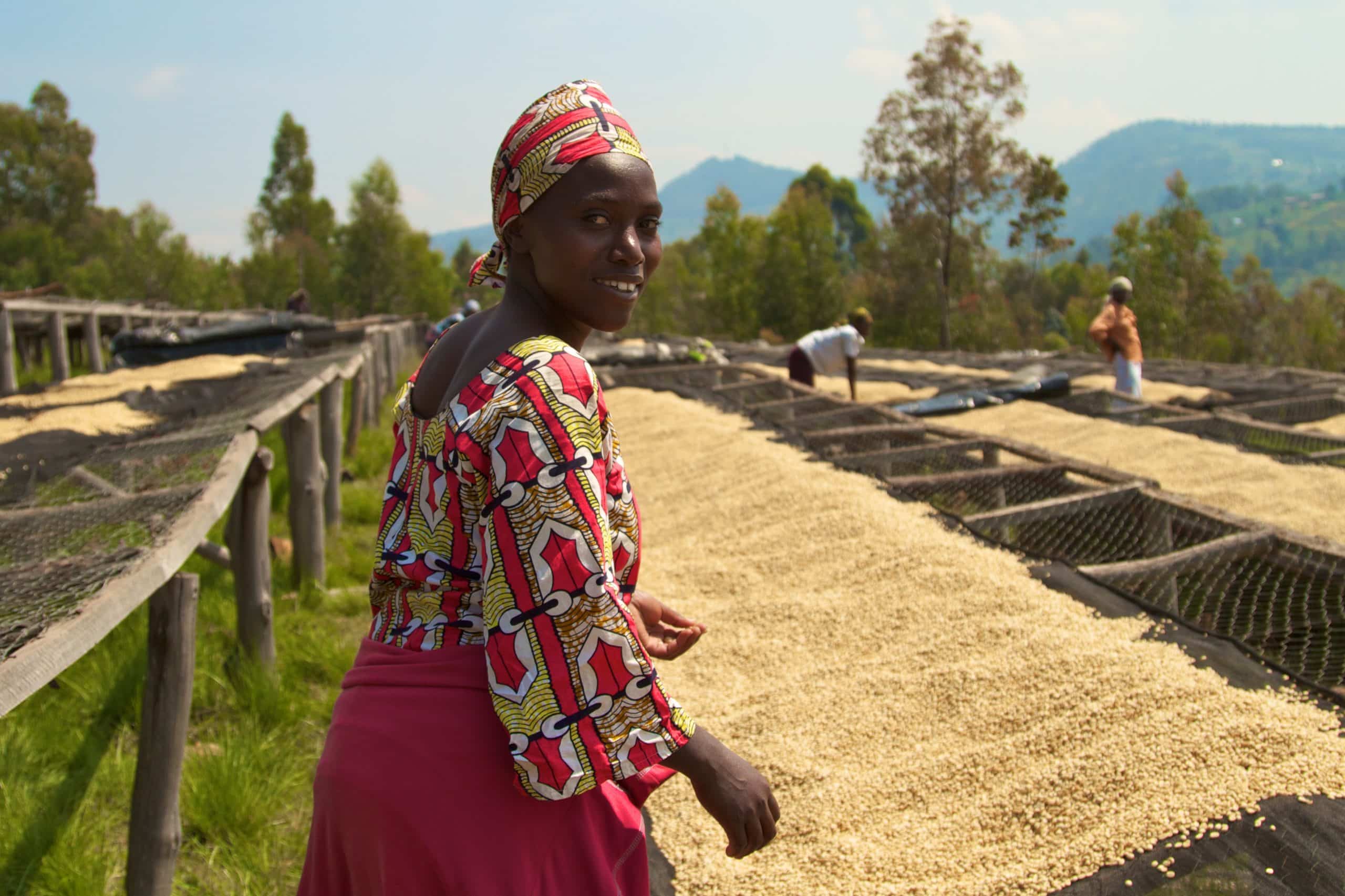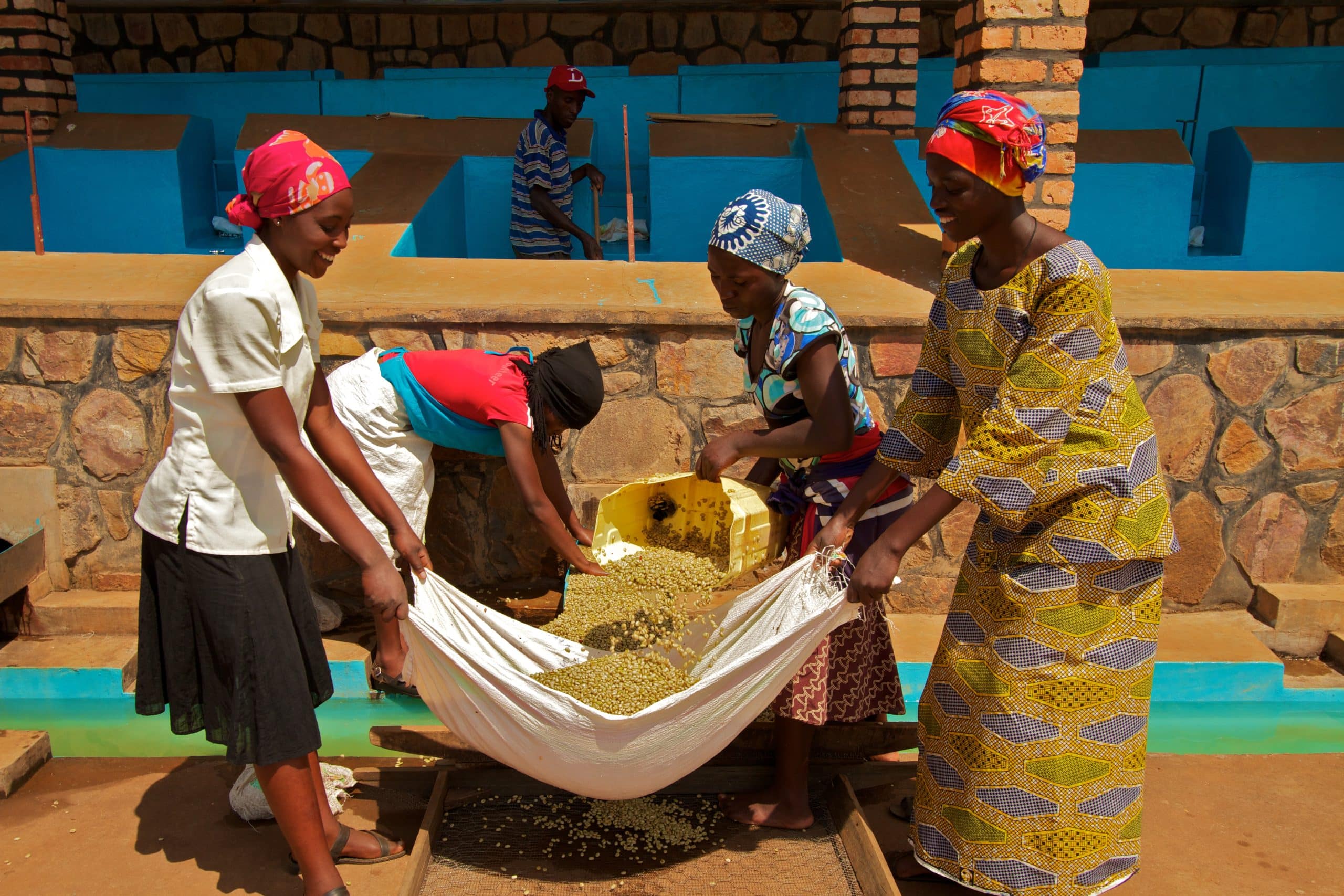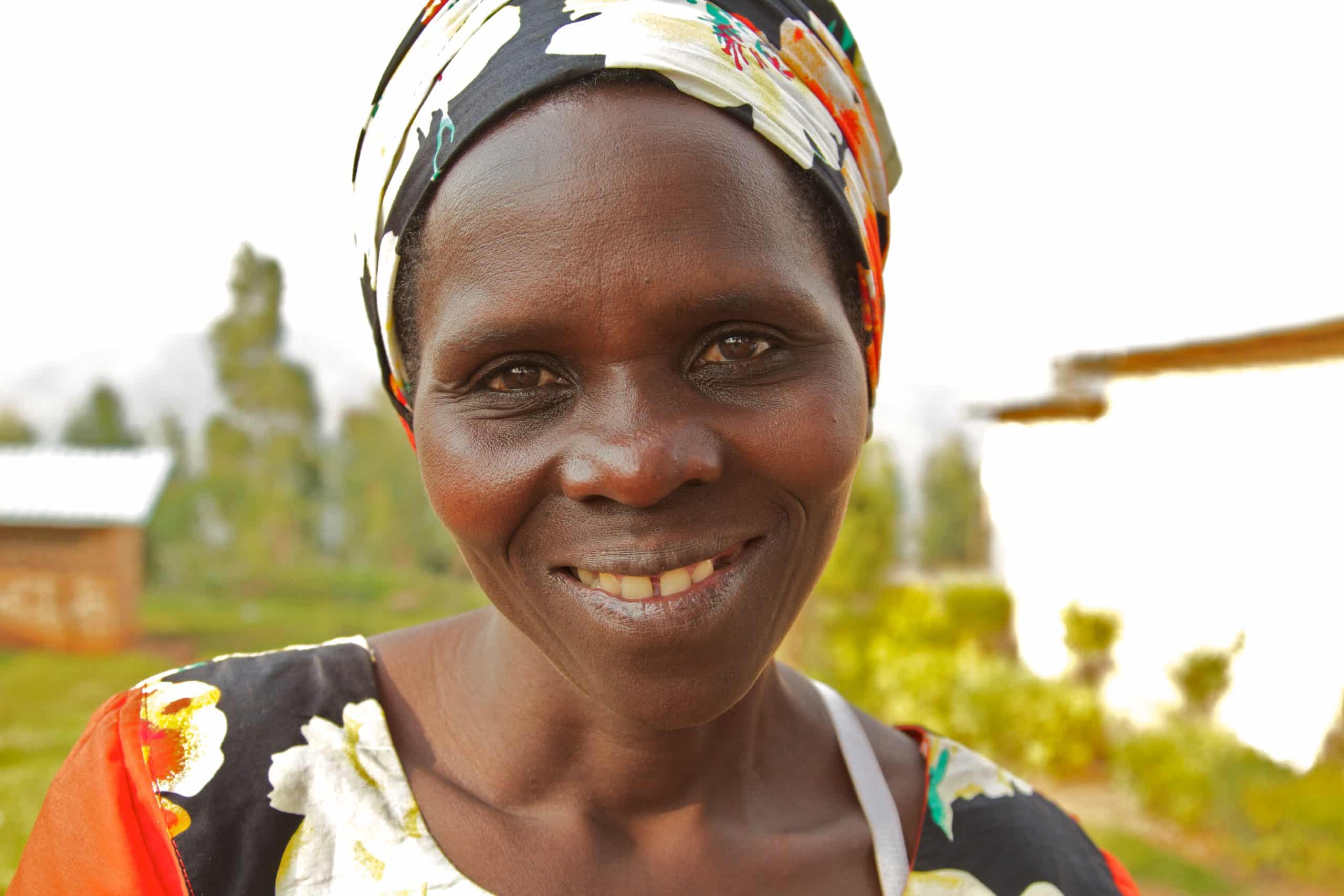
In 2005, the Dukundekawa coffee cooperative, also known as Musasa, became Root Capital’s first client in Africa. Since its founding in 2004, Musasa has grown from 300 to more than 1,800 members—among them many women who were widowed by the 1994 genocide. Today, some of Musasa’s key managers are women, and the cooperative is pioneering new business opportunities for its female members.
New Responsibilities for Women
In the aftermath of the 1994 genocide, devastated communities in Rwanda’s coffee-growing regions struggled to rebuild. With the population and countryside ravaged by conflict, it was difficult to grow, process, and export coffee.
The reconstruction process called on Rwandan women to play a greater role.
“Many of our women became widows and, therefore, the leaders of their families,” explains Anasthase Minani, a female farmer who now heads the executive committee at the Musasa cooperative. “This meant that we had to take on work that had always been done by men.”
One of these women is Bertha Nzabanita, a cooperative member for whom specialty coffee has provided a path for hope and reconstruction. “When my husband died,” she says, “he left me a very old house and one field for coffee. Working with the cooperative, I have been able to build a better house and buy more coffee fields.”
Scaling Up the Business
 Female workers carrying wet coffee to drying racks
Female workers carrying wet coffee to drying racks
Musasa’s success has proven transformative for women like Bertha and their families, both at Musasa and beyond. But in order to ensure the cooperative’s continued prosperity, Musasa must be able to acquire enough coffee from small-scale farmers to access specialty markets and sell to foreign buyers.
“Unless farmers know they will be paid for their beans, they won’t transport and sell their coffee to the cooperative,” says Bertha, who has also become a buyer for Musasa. “So this is why the Root Capital loan is important.”
In 2005, based on Musasa’s contracts with leading specialty coffee buyers, Root Capital loaned the cooperative $90,000 to purchase raw beans from its members. When the processed beans shipped and buyers sent their payment, a portion of the proceeds paid off the Root Capital loan. Since then, Root Capital has provided Musasa with more than $1 million in financing.
Access to credit has had a major impact on Musasa, its members, and the surrounding community. With reliable financing, the cooperative has made long-term investments in the community. For instance, after beginning with a single washing station in 2004, Musasa now owns satellite “mini-stations” where farmers can sell their coffee. These beans are then brought to the central packing facility by a cooperative-owned vehicle—purchased with another loan from Root Capital.
This increased capacity means increased sales. Isaac Nsanzamahoro, chief accountant for Musasa, says, “At the beginning we could only buy enough beans to fill one storage container. Now, we are able to fill as many as seven containers to sell for export.”
“The Cooperative Invests in Us”
 Bertha Nzabanita, coffee buyer and member of Musasa.
Bertha Nzabanita, coffee buyer and member of Musasa.
As Musasa has grown, it has launched a number of initiatives to benefit women.
Bertha explains: “We have a sewing association, and we teach members’ kids to sew. We are also part of a program to sell ‘women’s coffee.’” The goal is to sell coffee at a premium by promoting its benefits for Rwandan women. Musasa members have also begun a program to produce and export udusekes, traditional Rwanda woven-papyrus baskets.
For Bertha, such forward-looking efforts help build trust and loyalty between farmers and cooperative.
“You could sell another buyer ten sacks of coffee, but you’ll lose him. You may never meet again. But the cooperative invests in us, and it makes a difference,” she says. “Today, I have four fields, and I have paid school fees for my child. Now he is finishing studies at the university this August.”
Information in this client profile is up-to-date as of publishing time.